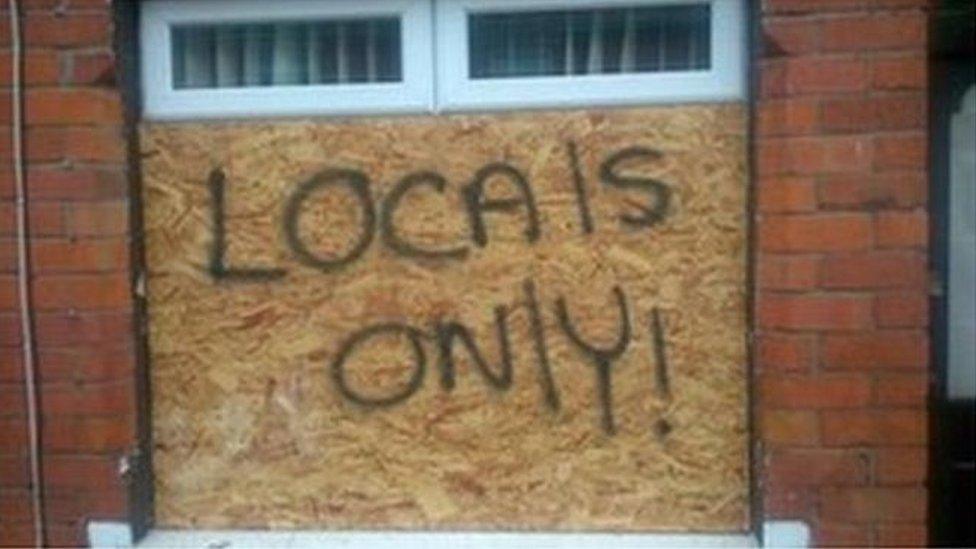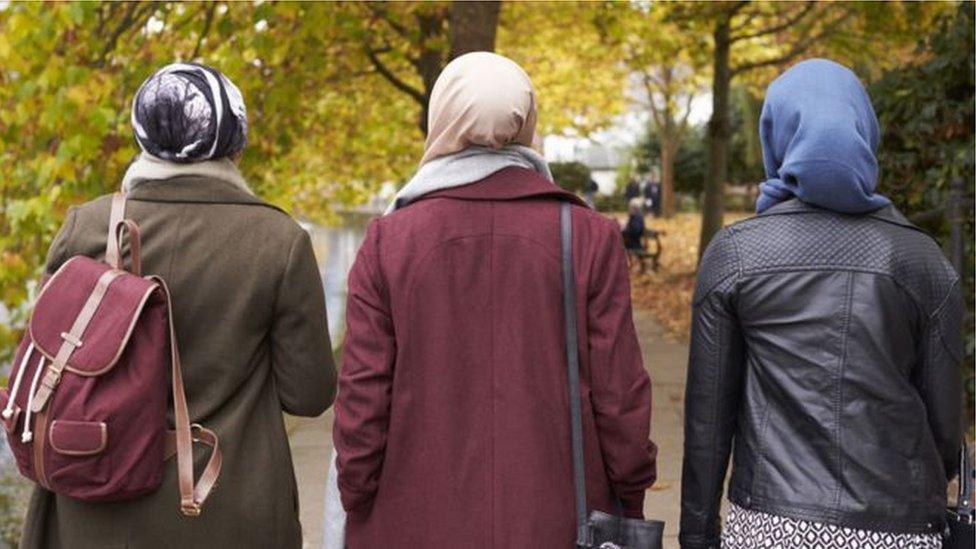Hate crimes against Muslims top 320 in Belfast
- Published

Some foreign families living in Northern Ireland have been the target of racist attacks in recent years
There have been at least 320 hate crimes against people from a Muslim background in Belfast alone over the past five years.
That is one of the findings of detailed research into the experiences of people from the Muslim community in the city.
However, the researchers said that most hate incidents involving Muslims were not reported to the PSNI.
The Institute for Conflict Research (ICR) carried out the study, which was commissioned by Belfast City Council.
There are thought to be around 6,000 Muslims in NI - less than half a per cent of the population.
That's according to a previous report by the Muslim Council of Britain (MCB), published in 2018.
The ICR research took place during summer 2018 and a report was delivered to the council's good relations unit in early 2019.
BBC News NI understands that a final version of the report has not yet been approved by Belfast City Council.

However, members of the shared city partnership and a council committee have been briefed on the main findings.
The report said that the PSNI did not publish specific data on the number of hate crimes experienced by people from a Muslim background.
However a briefing note on the report prepared for councillors said that the researchers had been able to estimate a figure.
"An analysis for this study reveals that there have been at least 320 recorded hate crimes committed against people from a Muslim background over the past five years," it said.
"Most of these involved attacks on the person or criminal damage to property while the largest number took place in the south Belfast policing district."
'A lack of trust'
However, the report said that most hate crime incidents were not reported to the PSNI, "in part due to a lack of trust, a belief that nothing can or will be done or a sense that such incidents were normal."
The researchers found that many people from a Muslim background had suffered verbal abuse.
"Women, particularly those wearing forms of dress that identified them as Muslim, were often an easy target for expressions of verbal hostility," the report said.
"On occasion this might extend to physical contact with head coverings being removed."
The report also said that stereotypes were "transmitted via the media and social media, associating Muslims with terrorism".
"Some perceive these newly arrived as a security threat.
"Many of those interviewed felt that Belfast (and Northern Ireland more generally) was struggling to adapt to growing diversity."
BBC News NI understands that a wide range of organisations and individuals were interviewed for the research, and many identified problems with political leadership.

Pastor James McConnell made his remarks at Belfast's Whitewell Metropolitan Tabernacle Church
"There was unanimity among interviewees that generous political signals were needed from the highest level to engender tolerance on the street," the report said.
"Several interviewees referred to the documented comments about Islam and Muslims in 2014 by a pastor within Belfast and the former first minister."
The report also sets out a number of recommendations including:
Belfast City Council taking the lead in monitoring and reporting online hate abuse
The council running programmes to build the confidence of bystanders to report hate crimes
More detailed hate crime figures be published by the PSNI, including figures for sub-groups and nationalities
The PSNI to re-run Islamic awareness courses for police officers.